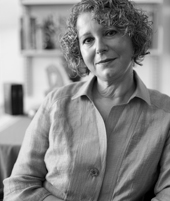Memoriam: A Gentle Prophet
Response invited memories for a former SPU staff member

By Debra Sequeira, Professor of Communications and Associate Dean of the College of Arts and Sciences
Joe knew much about bringing people from different races together in reconciliation. He had plenty of practice: within his own extended family; while living in an African-American community and being bused across town to a predominately white high school; while serving as the only African-American pastor in his church; and during graduate school.
Living out a calling for Christian higher education
Joe understood the challenges of evangelical Christian higher education and the reasons our colleges and universities lagged behind other institutions in making minority student recruitment a priority. Nevertheless, Joe felt called into the field to help with the harvest. As Jesus did with the Samaritan woman at the well, Joe believed that loving Christians should willingly cross cultures to relate God’s love despite the risks. Although increasing the minority population wasn’t his only goal, Joe knew that racial reconciliation would not happen without programs in place and if racial groups lacked opportunities to interact with each other. Before he came to SPU, others worked hard to gain ground on these issues; but Joe had the patience and interpersonal skills to take us further down the road.
He was a gentle prophet. Joe was successful in his efforts because he focused on relationships; he had the wisdom and experience to know that he couldn’t go it alone. But he also knew that the social responsibility of being a minority fighting for minorities would mean a certain amount of isolation. His white colleagues were not asked to speak for their race at every public event. His white colleagues were not expected to answer every question related to a racial issue that cropped up in the news. His white colleagues were never pushed to give something back to “their own people.” Still, Joe accepted every invitation to speak to students in classes all over campus. He served on Seattle Pacific’s Faculty Diversity Committee. He invited faculty and staff to mentor Ames Scholar minority students. He brought us in to the conversation so he wouldn’t have to do all the talking.
Helping others expand their horizons
Through Joe’s collaborative efforts with many offices across campus, our minority student population grew, and the majority students wanted to learn more about race and culture. Multicultural groups sprouted up, and Joe gave those students a safe place to grow and thrive. Joe never took credit for his efforts; he always gave credit to the students. After students attended an annual National Christian Multicultural Student Leaders Conference, they went to President Philip Eaton and asked if SPU could host one. Joe credited the students for making that conference happen. Racial reconciliation and discussions of diversity became more common at SPU, and several prominent African-American pastors and authors came to speak in various campus venues.
Joe’s ability to bring people (and events) together was only one of his many gifts. Joe knew how to keep the vineyard workers going. He took us out of our comfortable neighborhoods and expanded our horizons. But he never pushed us in places where he was unwilling to go himself.
Joe was a dear friend. Even after he left SPU for Azusa Pacific University, we never lost contact. Joe would return to Seattle at least twice a year. He was the perfect house guest — low maintenance and always appreciative. I miss our talks.
Joe let me know him and allowed me to be transparent as well. And although we sometimes shed tears together, we spent much of our time making each other laugh. We had similar musical tastes, but I could actually dance. Though often a loner, Joe craved connection and he cherished his relationships. We often broke bread together. We stopped by each other’s offices and we visited each other’s homes. Joe seemed to keep his home in a series of boxes that were never unpacked. I always thought that the unpacked box was a metaphor for his life. He was always moving, never settling down, in between stops. I know he is at rest now, but those of us still in the vineyard cannot rest. We stand on the shoulders of what is in order to glimpse what is not yet. The kingdom has not yet come, but with God’s grace and Joe’s inspiration, the vineyard workers will be plentiful.
"A Sermon for Joe" by Tali Hairston, director for the John Perkins Center for Reconciliation, Leadership Training, and Community Development
"An SPU Student Remembers" by Belinda Aldrett, SPU senior, English major
"Groundbreaking Work" by Susan Okamoto Lane, director of Multi-Ethnic Programs
"A Gentle Prophet" by Debra Sequeira, professor of communication and associate dean of the College of Arts and Sciences
Return to Remembering Joseph Snell
Return to Response |